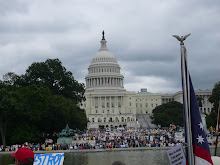We have found that in some significant areas, the teaching at Pine-Richland is systematically tearing apart the values and morals we parents are giving to our children, and this teaching is intended to re-shape their worldviews into Socialists-Marxists.
Parents need to remember that their kids don't have a knowledge base to be able to tell facts from errors, and that the kids do not tell them much! Some examples:
- William Shakespeare was a homosexual.
- Benjamin Franklin had over 80 illegitimate children.
- In Christianity Easter replaced Passover and Christian missionaries "converted Gentiles and forced them to follow Jewish law".
- During World War II, it was an atrocity that the Americans destroyed the beautiful architecture in Germany.
- Early colonists tried to make Native Americans slaves, but they were too weak to work.
- Colonists gave the Native Americans blankets that were infected with small pox on purpose, killing – that is, genocide! (theory originates with the controversial Ward Churchill who has expressed hatred toward America and believes the 9-11 attacks on the World Trade Center were justified).
- The colonists fighting in the Revolutionary War were radical terrorists (not an exaggeration - this was from my own kid).
- John Hancock tarred and feathered British postal workers and the colonists in general were murderous, burning down houses etc (teacher may have gotten this in error from the John Adams HBO miniseries).
- George Washington was a terrible failure as a soldier.
- The French and Indian War was all the colonists' fault. The British had to impose high taxes because they bailed us out. Therefore, we should have just paid the taxes, the Revolutionary War was unethical, and thus the United States should not even exist.
- The Afghanistan war is like the Revolutionary War, only the Taliban are like the colonists and the US soldiers are like the British.
- the colonists at Jamestown became cannibals and so did Roanoke (only evidence is possibly one mentally ill man at Jamestown; only one oddball "historian" thinks Roanoke did this).
- Islam is more democratic and spiritual than Christianity (teacher notes).
- Islam teachings stress love, kindness, brotherhood (teacher notes).
- The Koran might be viewed as a sequel to the Bible (teacher notes).
- On Christianity: "Historians believe that the gospel of Mark was the most authentic and was used by other authors later. However, the testimony was written by "believers" not the apostles (not fact) and even they disagree". This is from a PR HS teacher's class notes!!!!
For Current Global Issues HS course, questions included: "What motivates religious people to turn to violence? Do religious beliefs justify terror? Why can't we all get along (if religions are basically the same)? Would the world be better without religion?" (This course also uses the UN Cyber School Bus curriculum).
- The HS started having a spring Symposium on Education: in 2010 it was on "Ethics in Education" but it could just as easily be called "A Tribute to Brazilian Marxist Education Reformer Paulo Freire"; and in 2009 it was on "Democracy in Education" but could be re-named "An Ode to Progressive Leader John Dewey". These events were the pinnacle of Marxist, Progressive, secular humanistic indoctrination; It can be found in reading 30+ essays that they all projected anti-Christian, un-American, anti-capitalistic, pro-abortion, liberal views.
- Our children are being taught to get into Socratic Circles and dialogue (not debate) until they reach a consensus (compromise). There are certain values and principles that we teach our children in which there is not room for compromise. Such categories are faith, morals and values.
- Our children are also being taught that they are being brought up with biases, biases that they get from their parents, pastors, etc. and that they should question everyone and everything.
